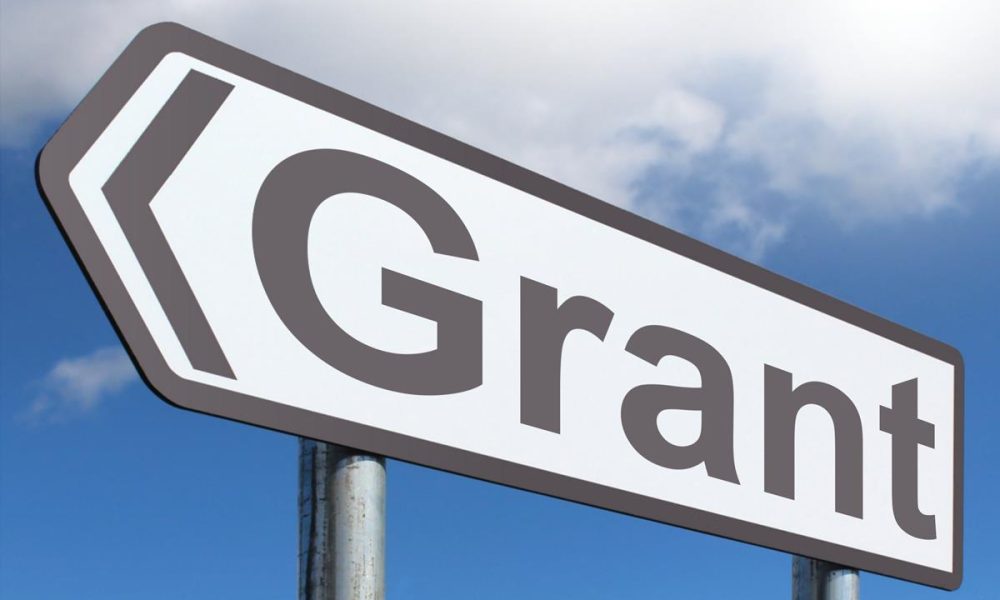Tag: Coronavirus
Advice and resources from Mouktaris & Co for employers and employees
CJRS extended to 30 April 2021
In a partial repeat of the announcement made by the Chancellor on 5 November 2020, the government has announced extensions to the furlough scheme and three of its business loan schemes:
- The Coronavirus Job Retention Scheme (CJRS) has been extended by a further month to 30 April 2021. The furlough scheme will continue to pay 80% of wages up to £2,500 for the hours that furloughed or flexi-furloughed employees don’t work. Employers will pay employer National Insurance Contributions and pension contributions.
- As a consequence, the Job Support Scheme has been deferred to start on 1 May 2021, from 1 April 2021.
- Application deadlines for the Bounce Back Loan Scheme, Coronavirus Business Interruption Loan Scheme and Coronavirus Large Business Interruption Loan Scheme have been extended by a further two months to the end of March 2021.
Whether you’re an existing client or don’t yet use our services, we would be pleased to help you. Contact Mouktaris & Co Chartered Accountants for expert advice or click here to subscribe to our Newsletter.
Coronavirus: Latest version of the Furlough Scheme
On 5 November, the Chancellor announced that the CJRS would be extended until the end of March 2021 for all parts of the UK. Employers want to know the details announced yesterday, as employees hope this will be enough to secure their jobs.
HMRC has circulated a short round-up explaining the impacts of this and where to find more information. The new and updated collection of advice notes can all be accessed from a single page: gov.uk/government/collections/coronavirus-job-retention-scheme.
What’s happening
CJRS has been extended to 31 March for all parts of the UK. From 1 November, the UK Government will pay 80% of employees’ usual wages for the hours not worked, up to a cap of £2,500 per month. Employers will continue to pay for hours worked as normal. The Government will review the policy in January.
Who is eligible
Employers and their employees do not need to have used the scheme before to claim for periods from 1 November. Employers can claim for employees who were employed on 30 October 2020, as long as a PAYE RTI submission was made to HMRC between the 20 March 2020 and 30 October 2020, notifying a payment of earnings for that employee.
Reference pay
All employees on an RTI submission on or before 19 March 2020 will be able to use the CJRS calculations as applied in August 2020 for reference pay and usual hours. For new employers claiming and new employees hired between 20 March 2020 and 30 October 2020, the average of tax year 2020 to 2021 up to the start of the furlough provides the basis for calculation (for fixed pay employees its the last pay period prior to 30 October 2020).
Legal matter
Employers should discuss with their staff and make any changes to the employment contract by agreement. To be eligible for the grant, employers must have confirmed to their employee in writing that they have been furloughed. Our clients can contact our office and we will provide you with a template agreement.
Compliance and monitoring
HMRC intend to publish details of employers who use the scheme for claim periods from December, and employees will be able to find out if their employer has claimed for them under the scheme.
Further updates
- As a consequence, the Job Support Scheme will start on 1 April 2021 at the earliest
- It also means that the £1,000 Job Retention Bonus will now not be paid in February 2021. The government said they will redeploy a retention incentive at the appropriate time.
- The Self-Employment Income Support Scheme (SEISS) grant for November-January will cover 80% of average monthly trading profits, paid out in a single instalment covering three months’ worth of profits, and capped at £7,500 in total. This is an increase from 55% and £5,160 respectively, previously announced.
- As of 2 November, application deadlines have been extended until 31 January 2021 for the:
- Bounce Back Loan Scheme
- Coronavirus Business Interruption Loan Scheme
- Coronavirus Large Business Interruption Loan Scheme
- Future Fund
- Covid Corporate Financing Facility
The extended generosity by the government comes at a cost. How precisely all of the various coronavirus schemes will be financed is highly uncertain.
Whether you’re an existing client or don’t yet use our services, we would be pleased to help you. Contact Mouktaris & Co Chartered Accountants for expert advice or click here to subscribe to our Newsletter.
Coronavirus: additional schemes and updates
Chancellor Rishi Sunak has vowed to “go further” as he announced the government’s latest Plan for Jobs: three new measures to help workers and businesses get through lower demand over the winter due to a coronavirus second spike. The most significant announcements concern the Job Support Scheme (JSS), which will be made up of two parts: JSS Open and JSS Closed. Both will start on 1 November, the day after the Coronavirus Job Retention Scheme (CJRS) finishes, and run for six months.
JSS Open
JSS Open will provide support to businesses that are open where employees are working shorter hours due to reduced demand.
- Employees will need to work at least 20% of their usual hours and employers will continue to pay employees for the hours they work.
- For the hours not worked:
- The UK government will pay a contribution of 61.67% of the usual pay, up to a maximum of £1,541.75 per month.
- Employers will pay 5% of the usual pay, up to a maximum of £125 per month, and can top this up further if they choose.
- Employees should receive at least two thirds of their usual pay for hours not worked, where they earn £3,125 a month or less.
- Employers will need to cover all employer National Insurance and pension contributions.
When JSS was originally announced, the government’s and the employer contribution to wage costs was to be one third each of the hours not worked.
JSS Closed
JSS Closed will provide support to businesses whose premises are legally required to close as a direct result of coronavirus restrictions set by one of the four governments of the UK. This includes premises restricted to delivery or collection-only services from their premises, and those restricted to providing food and/or drinks outdoors.
For JSS Closed, the UK government will fund two thirds of employees’ usual wages for time not worked, up to a maximum of £2,083.33 per month. Employers will not be required to contribute, but they can top up the government’s contribution if they choose to. Employers will still need to cover all employer National Insurance and pension contributions.
Self-employment Income Support Scheme (SEISS) Grant Expansion
It was previously announced that SEISS would cover 20% of monthly profits for the period from November 2020 to January 2021, capped at £1,875 in total. The UK government is now doubling the value of the first grant to 40% of three months’ average trading profits, paid out in a single instalment, and capped at £3,750. HMRC will provide full details about claiming and applications in mid-November. The second grant will cover a three-month period from the start of February until the end of April. The government will review the level of the second grant and set this in due course.
Grants for businesses in Tier 2 and Tier 3 Areas
Businesses in England in Very High alert level areas (Tier 3) will now be able to claim grants, regardless of whether they are legally required to close or remain open. The grant will be:
- £1,300 per month for businesses occupying a property with a rateable value of less than £15,000
- £2,000 per month for businesses occupying a property with a rateable value of less than £51,000 or occupying a property or part of a property with annual rent or mortgage payments of less than £51,000
- £3,000 per month for businesses occupying larger properties
Hospitality, hotel, B&B and leisure businesses in England in High alert level areas (Tier 2) will now also be able to claim grants. The grant will be:
- £934 per month for businesses occupying a property with a rateable value of less than £15,000
- £1,400 per month for businesses occupying a property with a rateable value of less than £51,000
- £2,100 per month for businesses occupying a property with a rateable value of greater than £51,000
Businesses in other sectors may also be eligible at the local authority’s discretion and we urge our clients to maintain communication with their local authority where possible, as discretionary grants are often made available at short-notice.
Businesses in any area which has been under enhanced restrictions can backdate their grants to August.
Whether you’re an existing client or don’t yet use our services, we would be pleased to help you. Contact Mouktaris & Co Chartered Accountants for expert advice or click here to subscribe to our Newsletter.
Winter Economy Plan
Chancellor Rishi Sunak today delivered a statement setting out plans to help workers and businesses hit by new coronavirus restrictions. With plans for an Autumn 2020 Budget cancelled, the Chancellor announced his Winter Economy Plan. In it he outlined how the various government support schemes to help businesses through the coronavirus restrictions will be extended or remodeled.
Job Support Scheme
As now anticipated, the introduction of the new Job Support Scheme (JSS) will come into effect on 1 November after the Coronavirus Job Retention Scheme (CJRS) ends. Under JSS, which will last for six months, employees who work at least 33% of their hours will be paid for two thirds of the hours they do not work, shared equally between the employer and the government.
The result is that an employee working 33% of their normal hours will receive 77% of their pay: 55% paid by the employer and 22% paid by government.
Other measures
- The self-employed grant is extended on similar terms to the JSS. A grant will be available to those eligible for the Self Employment Income Support Scheme (SEISS) and will cover 20% of monthly profits for the period from November 2020 to January 2021. A further grant to cover February 2021 to April 2021 may become available, depending on circumstances. [22/10/2020 UPDATE]: In his third economic statement within the last month, the Chancellor confirmed more generous terms for the remaining SEISS grants. The level of the third grant will be based on 40% of average trading profits, rather than the previously announced 20%, and will be capped at £3,750. The level of the fourth grant is to be kept under review and announced in due course. [Subsequent UPDATE]: The Chancellor confirmed once again even more generous terms for the remaining SEISS grants. The level of the third grant will be based on 80% of average trading profits, rather than the previously announced 20% then 40%, and will be capped at £7,500.
- Businesses that deferred a quarterly VAT payment during the lockdown previously had to pay this back by 31 March 2021 – now they will be able to spread this over 11 months during 2021/22. Businesses will need to opt in, but all are eligible.
- Individuals who deferred their July 2020 self-assessment tax liabilities till January 2021 will now not need to pay that till January 2022. Taxpayers with up to £30,000 of Self-Assessment liabilities due, including liabilities that will become due in January 2021, will be able to use HMRC’s self-service Time to Pay facility to secure a plan to pay over an additional 12 months. Any Self-Assessment taxpayer not able to pay their tax bill on time, including those who cannot use the online service, can continue to use HMRC’s Time to Pay Self-Assessment helpline to agree a payment plan.
- The VAT reduction to 5% for the hospitality sector will be extended from 12 January 2021 to 31 March 2021.
- The extension of Coronavirus Business Interruption Loan Scheme (CBILS) and Bounce Back Loan Scheme (BBLS) loans from six to ten years.
- BBLS loans will become known as “Pay as You Grow” – businesses will enjoy a flexible repayment system which will include interest-only periods of up to six months and payment holidays.
- Applications for new loans under BBLS, CBILS, the Coronavirus Large Business Interruption Loan Scheme and the Future Fund remain open till the end of November 2020.
Whether you’re an existing client or don’t yet use our services, we would be pleased to help you. Contact Mouktaris & Co Chartered Accountants for expert advice.
Technology and Professional Services Grant for SMEs
The government has announced details of new funding, designed to help small and medium sized businesses (SMEs) access technology and advice. SMEs will have access to grants of between £1,000 – £5,000 to help them access new technology and other equipment as well as professional, legal, financial or other advice to help them get back on track. The programme is due to launch in September.
Funds could be deployed to help businesses in the following ways:
- Advice on implementing technologies to streamline operations, for example apps to organise rotas and reporting for staff
- Equipment to facilitate efficiencies, including with respect to financial reporting or continuing to deliver business activity in response to COVID-19
- Legal advice regarding getting back on track and managing stakeholders, including HR
- Professional advice to review business strategy or business models
- Coaching and mentoring in leadership and management development
- Innovation strategy to adapt and diversify products or services
- Developing or revising marketing or digital strategies to reach new markets
- Mitigating the impact of social distancing measures
- Legal and environmental health compliance
- Skills analysis and development plans
- Employee engagement, welfare and wellbeing
Mouktaris & Co provide many of the services which will be eligible for this support, including accountancy services, business advice, legal services and HR support. If you have considered a project or initiative to develop your business, the grant program may be suitable for you. You can access the funding – provided by the England European Regional Development Fund – as part of the European Structural and Investment Funds Growth Programme 2014-2020, through 38 growth hubs within a Local Enterprise Partnership (LEP) area. If you are interested in support, advice or funding associated with your business venture, please contact your nearest LEP growth hub.
Further information
- The support will be fully funded by the Government with no obligation for businesses to contribute financially.
- Amongst other eligibility criteria, a business must have been trading on or before 1st March 2019 and should still be trading.
- The grant must cover 100% of the service a business is procuring (up to a maximum total project value of £5,000). The grant cannot be used to part-fund expenditure.
- Grants must be claimed within one month of receiving confirmation that the application has been accepted and upon production of an invoice for the claimed service or goods.
- Growth Hubs work across the country with local and national, public and private sector partners – such as Chambers of Commerce, FSB, universities, Enterprise Zones and banks, coordinating local business support and connecting businesses to the right help for their needs. They are locally driven, locally owned and at the heart of the government’s plan to ensure business support is simpler, more joined up and easier to access. A Growth Hub will therefore encourage you to utilise specialist advice from a local supplier.
- The funding being provided to businesses is supported by the England European Regional Development Fund as part of the European Structural and Investment Funds Growth Programme 2014-2020. The funding has been allocated to Growth Hubs within each LEP area in line with the current ERDF Programme.
Whether you’re an existing client or don’t yet use our services, we would be pleased to help you. Contact Mouktaris & Co Chartered Accountants for expert advice, including ideas on deploying funds to help your businesses grow.
Summer Statement 2020: summary
Four months after using his Spring Budget speech to announce the government’s first round of economic stimulants for supporting households and businesses through coronavirus, the chancellor yesterday cemented his status as the government’s Santa Claus, lavishing more gifts to Christmas 2020 and beyond.
It was branded as ‘A Plan for Jobs’ with a focus on supporting, creating and protecting UK employment. Here are some of the key measures announced by the Chancellor, and their implications for taxpayers.
STAMP DUTY
- A temporary increase in the Nil Rate Band of Residential stamp duty land tax (SDLT) in England and Northern Ireland, from £125,000 to £500,000. This will apply from 8 July 2020 until 31 March 2021 and cut the tax due for everyone who would have paid SDLT.
- Saves £15,000 on a transaction valued at £500,000.
- House buyers will only face a bill for stamp duty if they are spending more than £500,000 on a main property
“JOB RETENTION BONUS” TO ENCOURAGE FIRMS TO RETAIN FURLOUGHED STAFF
- A one-off £1000 payment to employers for every furloughed employee retained to the end of January 2021
- Applies to workers earning over the Lower Earnings Limit of £520 per month on average between the end of CJRS and the end of January 2021
SIX-MONTH VAT CUT FOR RESTAURANTS, HOTELS AND ATTRACTIONS
- A cut in VAT from 20% to 5% for the hospitality and tourism sectors from 15 July 2020 until 12 January 2021
- Food and non-alcoholic drinks in restaurants, pubs and cafes, as well as hot takeaway food will be covered
- Accommodation in hotels and B&Bs and admission to attractions such as theme parks and cinemas also affected
APPRENTICES, TRAINEES AND WORK PLACEMENTS
- A new grant of £2,000 will be made available to employers in England for each new apprentice they hire aged under 25, and a £1,500 payment for each new apprentice they hire aged 25 and over, from 1 August 2020 to 31 January 2021.
- Employers who provide trainees with work experience will be awarded a further £1,000 per trainee.
- Under the new “Kickstart Scheme”, £2bn has been allocated to fund 6-month work placements for people aged 16-24 and deemed at risk of long-term unemployment. Funding will cover 100% of National Minimum Wage for 25 hours per week plus associated National Insurance Contributions and automatic pension enrolment contributions.
EAT OUT TO HELP OUT
- Scheme offers 50% discount for every restaurant diner, up to £10 a head, from Monday to Wednesday throughout August
- Covers food and non-alcoholic drinks only
- Applies at participating restaurants, pubs, cafes etc
- Restaurant owners can claim the discount in full from the government via an online form to be circulated
GREEN HOMES GRANT
- From September, homeowners will be able to apply for vouchers worth up to £5,000 per household for projects to make homes more energy efficient in England
- Will match owners or landlords’ spend, £2 for £1 for most homes
- Up to £10,000 per household fully funded for low-income households
We are doing everything we can to help our business community. If you would like to discuss how the changes or the coronavirus pandemic may affect you or your business, please do not hesitate to contact us on 020 8952 7717 or use our online enquiry form.
The Coronavirus Local Authority Discretionary Grants Fund
The Chancellor announced further government support to small businesses with fixed property costs, that are not eligible for the Small Business Grant Fund or the Retail, Hospitality and Leisure Grant Fund.
The grant is designed to allow businesses to continue meeting their property-related overheads, so that in turn less strain is placed on landlords, who of course have their own commitments and obligations.
These businesses may now be eligible for a grant of £25,000, £10,000 or any amount under £10,000. Critically, grants will be awarded to eligible businesses on a first-come, first served basis until all the fund has been allocated. We encourage our clients who believe that they may be eligible to visit their local council’s website to find out how to apply. The local council will run an application process and decide whether to offer the grant.
ELIGIBILITY
You may be eligible if your business:
- is based in England
- has relatively high ongoing fixed property-related costs
- occupies property (or part of a property) with a rateable value or annual mortgage/rent payments below £51,000
- was trading on 11 March 2020
- did not claim under another government grant scheme, such as the Small Business Grant Fund or the Retail, Hospitality and Leisure Grant
Local councils have been asked to prioritise businesses such as:
- small businesses in shared offices or other flexible workspaces, such as units in industrial parks or incubators
- regular market traders
- bed and breakfasts paying council tax instead of business rates
- charity properties getting charitable business rates relief, which are not eligible for small business rates relief or rural rate relief
You will need to show that your business has suffered a significant fall in income due to coronavirus and you should contact our office if you require assistance putting together a claim.
We are doing everything we can to help our business community. If you would like to discuss how the changes or the coronavirus pandemic may affect you or your business, please do not hesitate to contact us on 020 8952 7717 or use our online enquiry form.
Coronavirus Bounce Back Loan Scheme
Among the range of UK Government measures to help protect businesses and individuals from the economic impact of coronavirus, the latest to be announced is the Bounce Back Loan Scheme (BBLS). Launched on Monday 4 May 2020, smaller businesses impacted by coronavirus are now able to apply for funding support of up to £50,000 via the BBLS if certain eligibility criteria are met.
HOW CAN I GET HOLD OF THE MONEY?
The BBLS provides lenders with a government-backed guarantee of 100% to offer loans of up to £50,000 to businesses across the UK that are losing revenue as a result of the COVID-19 outbreak.
BBLS is administered by the British Business Bank and made available to businesses via accredited lenders. It is currently open until 4 November 2020.
KEY FEATURES OF THE SCHEME
- Facilities to £50,000 or 25% of turnover, whichever lower, for eligible businesses.
- Repayment terms: six years, with no penalty for early repayment.
- Interest rate: 2.5% per annum. Interest is payable by the government for the first 12 months.
- Personal guarantees: No personal guarantees. No recovery action can be taken over the borrower’s main home or primary personal vehicle but, for sole traders or partnerships, other personal assets may be at risk of recovery action.
- 100% guarantee: The scheme provides the lender with a government-backed guarantee (100%) against the outstanding facility balance (principal and interest).
- The borrower always remains 100% liable for repayment of the debt.
- The borrower must self-declare they meet the eligibility criteria and make certain confirmations of solvency.
TO BE ELIGIBLE FOR THE BBLS
A business must confirm:
- It is a UK limited company or partnership, or tax resident in the UK, that was carrying on business on 1 March 2020.
- More than 50% of its income is derived from its trading activity.
- The loan will not be used for personal purposes but as an economic benefit for the business.
- Whether or not on 31 December 2019 it was a ‘business in difficulty’ (see definition in FAQs for Small Businesses: Bounce Back Loan Scheme) and does not breach state aid restrictions. If it was a ‘business in difficulty’ then, in addition, the facility will not be used for export-related activities.
- It is not in bankruptcy, debt restructuring proceedings or liquidation.
- Its understanding of losses that may be incurred, impact on credit rating, reduced consumer protection and that the lender will not assess affordability.
A business will be subject to standard checks such as customer fraud, Anti-Money Laundering (AML) and Know Your Customer (KYC) checks.
Ineligible businesses and sectors: banks, building societies, insurance companies; the public sector including state-funded primary and secondary schools; or an individual other than a sole trader or partner acting on behalf of a partnership.
Businesses that have utilised the Coronavirus Business Interruption Loan Scheme (CBILS), the Coronavirus Large Business Interruption Loan Scheme (CLBILS) or the Bank of England’s Coronavirus Corporate Financing Facility (CCFF) cannot also use the BBLS unless that loan will be refinanced in full by the BBLS.
We are doing everything we can to help our business community. If you would like to discuss how the changes or the coronavirus pandemic may affect you or your business, please do not hesitate to contact us on 020 8952 7717 or use our online enquiry form.
Coronavirus: Help for the Self-employed
Expanding the UK Government’s measures to protect people and businesses from the economic impact of coronavirus, the Chancellor now focused on self-employed individuals (including members of partnerships) whose incomes have suffered.
The Self-employment Income Support Scheme, announced on 26 March 2020, will come as a welcome relief to those in self-employment, who comprise 15.3% of the UK’s workforce. The new scheme will cover 95% of those who are self-employed.
Under the scheme, a grant will be provided to self-employed individuals or partnerships, worth 80% of their profits up to a cap of £2,500 per month. This brings parity with the Coronavirus Job Retention Scheme, announced by the Chancellor last week, where the Government committed to pay up to £2,500 each month in wages of employed workers who are furloughed during the outbreak.
Second lump sum for self-employed [29/05/2020 UPDATE]
The Chancellor has announced a second and final grant to the self-employed who are eligible for the Self-employment Income Support Scheme (SEISS), based on 70% of earnings and capped at £6,570.
HMRC has confirmed the same eligibility criteria will be used to establish self-employed individuals’ entitlement to a further SEISS grant; the grant will be 70% rather than 80% of average earnings for three months and the maximum amount will be capped at £6,570, down from the £7,500 for the first grant. Applications will open in August and HMRC expects to publish further guidance on 12 June. As with the first claim, the second claim has to made by the taxpayer and cannot be made by agents.
QUALIFYING FOR THE SCHEME
- Self-employed or a member of a partnership
- Lost trading or partnership trading profits due to coronavirus (Covid-19)
- Filed a Tax Return for 2018-2019 as self-employed or a member of a trading partnership
- Eligible individuals who have not yet submitted 2018-2019 Tax Returns will have another four weeks to file in order to become eligible for this scheme (at time of writing a deadline of 23 April 2020).
- Not applicable to anyone who started trading in 2019-2020.
- Traded in 2019-2020 and were trading up until the point of application (or would be except for coronavirus)
- Intend to continue to trade in the tax year 2020-2021
- Trading profits of £50,000 or less and more than half of your total income come from self-employment. This can be with reference to at least one of the following conditions:
- Trading profits and total income in 2018-2019
- Average trading profits and total income across up to the three years between 2016-2017, 2017-2018 and 2018-2019.
We are doing everything we can to help our business community. If you would like to discuss how the changes or the coronavirus pandemic may affect you or your business, please do not hesitate to contact us on 020 8952 7717 or use our online enquiry form.
Negotiating time to pay with HMRC
HMRC has published details of the specific helpline to contact, but it’s not known whether HMRC will change its usual approach to time to pay, for taxpayers who are having difficulty paying.
The following usually needs to be considered when negotiating time to pay with HMRC.
WHEN TO MAKE CONTACT – In general it is advisable to contact HMRC as soon as difficulty making payment is expected. However, HMRC’s systems do not easily facilitate setting up a payment arrangement too far in advance, so the best time to phone HMRC is usually one to two weeks in advance of the due date for payment.
MAKE SURE RETURNS ARE UP TO DATE – HMRC is more amenable to agreeing time to pay if returns are up to date and the correct liability has been established.
CASH FLOW FORECASTS AND BUDGETS – Before phoning HMRC it is advisable to have financial forecasts and a statement of assets and liabilities available. HMRC will expect the taxpayer to make the best offer they can and will not usually make suggestions about the amount it will accept as a regular payment.
HMRC STAFF AUTHORITY TO AGREE TIME TO PAY – HMRC will usually expect to set up a regular monthly payment plan with collection by direct debit. Most HMRC debt management contact centre staff have authority to agree time to pay over a period of up to 12 months. Longer periods can be arranged but usually need to be escalated to more senior HMRC staff.
EXPECT ROBUST QUESTIONING – We don’t know to what extent HMRC staff will be more sympathetic to requests for time to pay in the current environment but in normal circumstances negotiating time to pay can involve what feels like personal and intrusive questioning. It is important to make HMRC aware of all information which might be relevant to the payment difficulties, as calmly and professionally as is possible in what may well be extremely difficult circumstances.
NO AGREEMENT MAY BE BETTER THAN AN UNAFFORDABLE AGREEMENT – It is often better to conclude a phone call to HMRC having failed to reach an agreement than to agree to an arrangement which the business can’t afford. If a time to pay agreement is not kept to it is difficult to get HMRC to reestablish it and HMRC will be more reluctant to make agreements in the future. If circumstances change it is advisable to contact HMRC, before missing any payments, to renegotiate the arrangement. If a formal time to pay arrangement cannot be reached it is usually advisable for the taxpayer to pay what they can when they can as this shows willingness to pay and may delay further enforcement action by HMRC (this approach may not be appropriate if insolvency is likely and further advice should be sought in this situation).
FUTURE TAX LIABILITIES – A standard term of HMRC time to pay agreements is that future tax liabilities are paid in full as they fall due. Where this is not possible it is necessary to contact HMRC again to renegotiate the arrangement to include the new debt. HMRC is often reluctant to agreed repeated requests for time to pay but may be more amenable in the current situation.
WHICH DEBTS TO PRIORITISE – HMRC is usually more willing to consider agreeing time to pay for profits based taxes such as income tax and corporation tax than for taxes such as VAT and employees’ PAYE and national insurance contributions, which businesses are effectively collecting on behalf of the exchequer. The usual advice is to prioritise paying VAT and employer liabilities as HMRC pursues these more actively. We don’t yet know whether this will change in the current situation; there has been some speculation that the Government may be minded to focus assistance on VAT and employer liabilities but no announcement has been made.
LATE PAYMENT PENALTIES – An advantage of a formal time to pay arrangement is that late payment penalties will not be charged if the arrangement is in place at the trigger date for the penalties. We don’t yet know whether HMRC will be more willing to waive late payment penalties in the current situation but the helpline page suggests that the cancellation of penalties will at least be explored.
INTEREST – In normal circumstances HMRC does not waive interest unless the delay in making payment is somehow directly attributable to HMRC. We don’t yet know whether HMRC will be more willing to waive interest in the current situation but the helpline page suggests that the cancelling of interest will at least be explored.
ALTERNATIVE WAYS TO CONTACT HMRC – As well as the COVID-19 helpline HMRC has regular payment helplines. Large businesses with a customer compliance manager should contact that individual. If the debt is a result of a compliance check any anticipated difficulty with making payment should be discussed with the compliance officer, ideally before reaching final settlement.
We are doing everything we can to help our business community. If you would like to discuss how the changes or the coronavirus pandemic may affect you or your business, please do not hesitate to contact us on 020 8952 7717 or use our online enquiry form.








